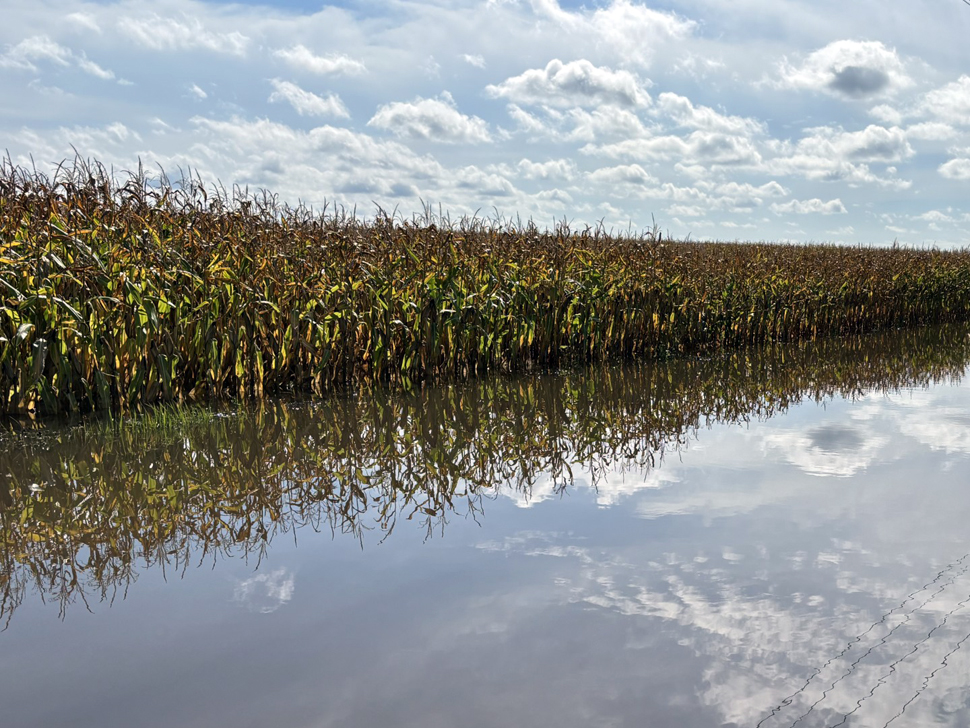Widespread rain last week slowed harvest in parts of Manitoba. That is according to Oilseed Specialist Sonia Wilson, after Manitoba Agriculture released its weekly crop report.
Wilson says the week of September 8th started warm, which allowed for harvest to progress. But then came some intense thunderstorms and extensive rain events, particularly in the southwest and eastern regions of our province. Wilson says the wettest location in the eastern region was Steinbach, with more than 100 millimetres of rain recorded in 31 hours.
As of September 14th, Wilson says 50 per cent of the harvest is now complete in Manitoba, with the central region leading the way at 63 per cent. She notes the winter wheat and fall rye harvests are wrapped up across our province.
The harvest of spring wheat is 90 per cent complete. Wilson says the spring wheat harvest is largely wrapped up in central Manitoba, with the northwest and southwest portions of our province lagging behind.
The barley harvest is about 87 per cent complete, with oats slightly behind at 79 per cent.
Wilson says the harvest of field peas has wrapped across Manitoba, while the canola harvest is only about one-third finished. She anticipates that in the next week, the soybean harvest will start, particularly in the eastern region.
As for yields, winter wheat is reporting 50 to 80 bushels per acre (bu/acre) this year, while fall rye ranges from 60 to 110 bu/acre. Wilson notes yields are variable, depending on the amount of rain received over the growing season.
Spring wheat has been averaging 50 to 60 bu/acre, but Wilson says there have been reports as high as 70 to 85 bu/acre. She notes that is especially true in the Pembina Valley.
Oat yields are averaging from 100 to 150 bu/acre, while barley sits at 60 to 70 bu/acre. Field peas range from 30 to 75 bu/acre, with an average of 60.
Canola has been averaging 45 to 60 bu/acre, but Wilson cautions that it is still early in that harvest.
Wilson says there are no yields to report yet from corn fields, as most of the corn is in the R5 or dent stage. However, she notes there are some reports of some silage corn having already been harvested, with average yields and good quality. Wilson says there are also no reports yet of either flax or sunflower yields. She adds though some of the earliest dry bean fields have been cut, there are no yields to report just yet.
And finally, the majority of soybeans are in the R6 to R7 growth stage.
The weekly crop report indicates that significant rainfall on the weekend has made it challenging for those still harvesting native hay and late-seeded greenfeed. Although the growing season is winding down, pastures remain in good condition for this time of year, due to warmer temperatures and ample moisture. Wilson says pastures are in excellent condition for this time of year. Straw baling will continue when weather conditions allow grain harvest to resume.
Cattle remain on pasture. Wilson says some producers in the Interlake and southwest are supplementing out on pasture. But despite recent rains, overall water balance is well below normal in the southeast, where rivers and dugouts are quite low. Winter feed supplies are mixed, with some areas sourcing additional feed while others have a surplus and are selling feed.
Meanwhile, Wilson says there will likely be some damage and yield loss from last week's heavy rain, particularly on fields where swaths were sitting in water.
"Definitely going to be looking for some hopefully warmer temperatures coming up to help with drydown and to help recover and have the drainage of all that rainfall we received," she adds.
